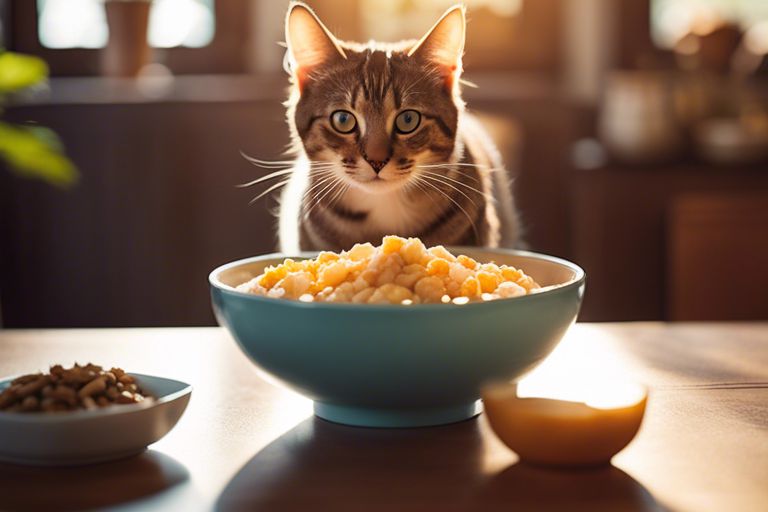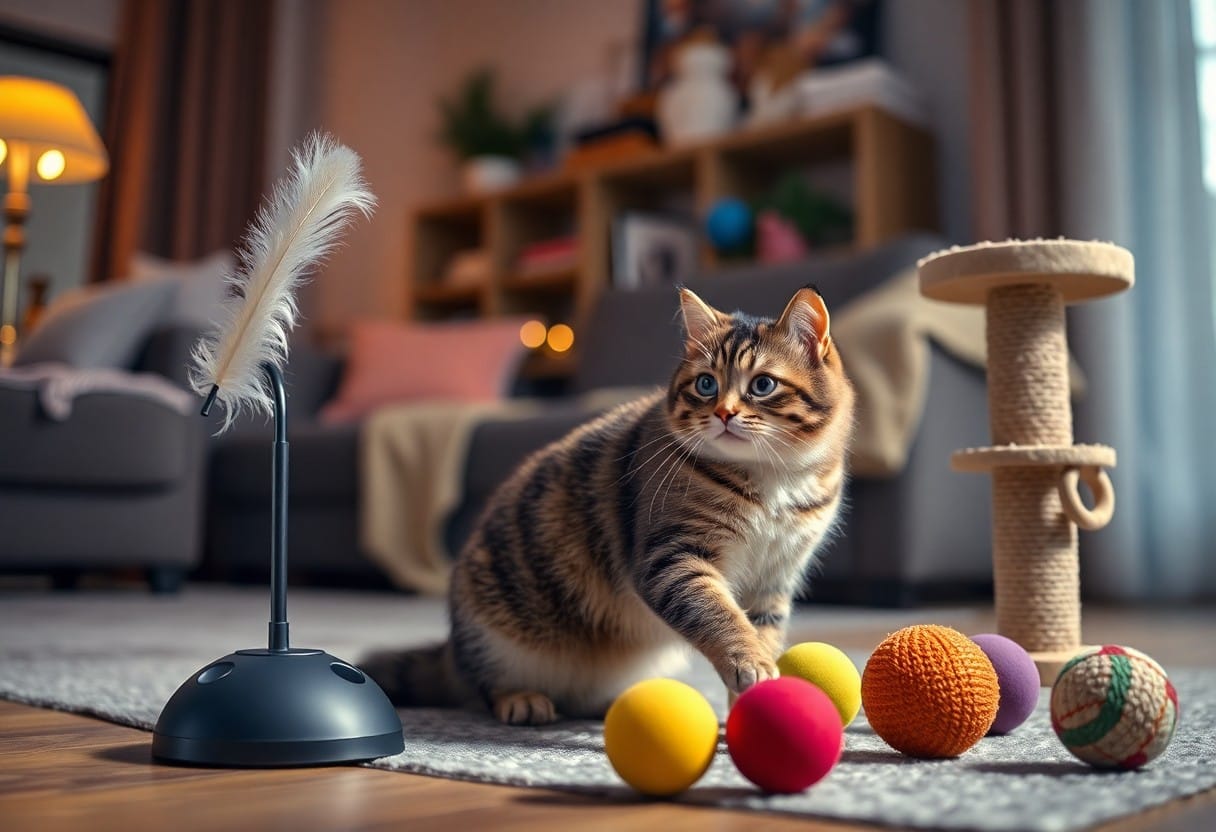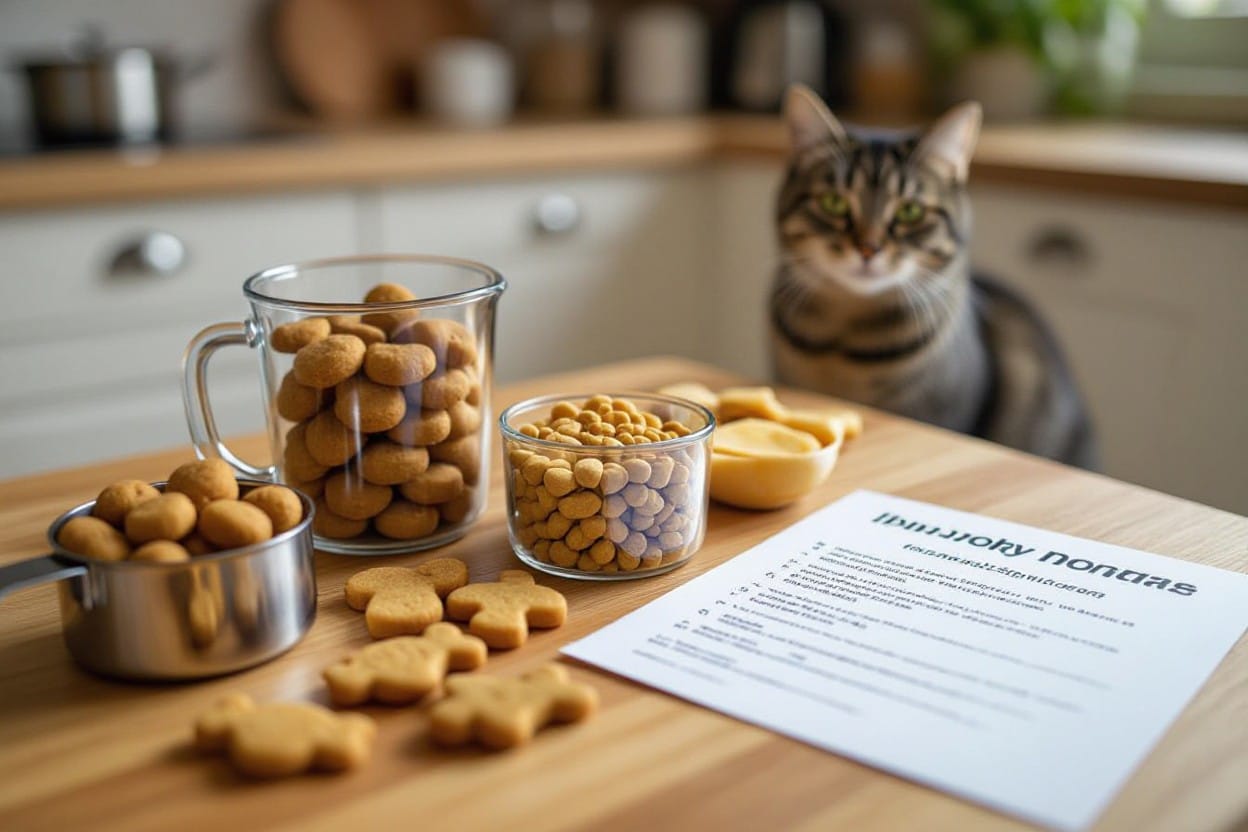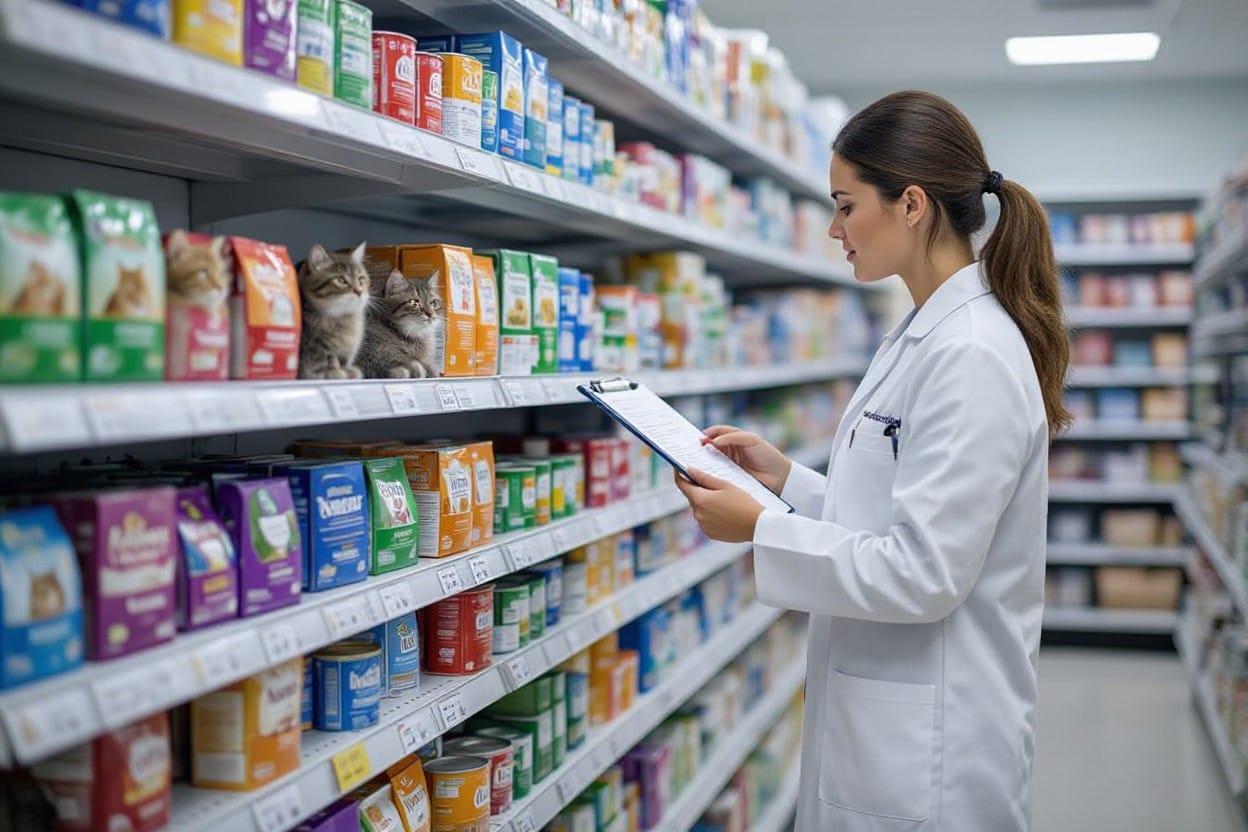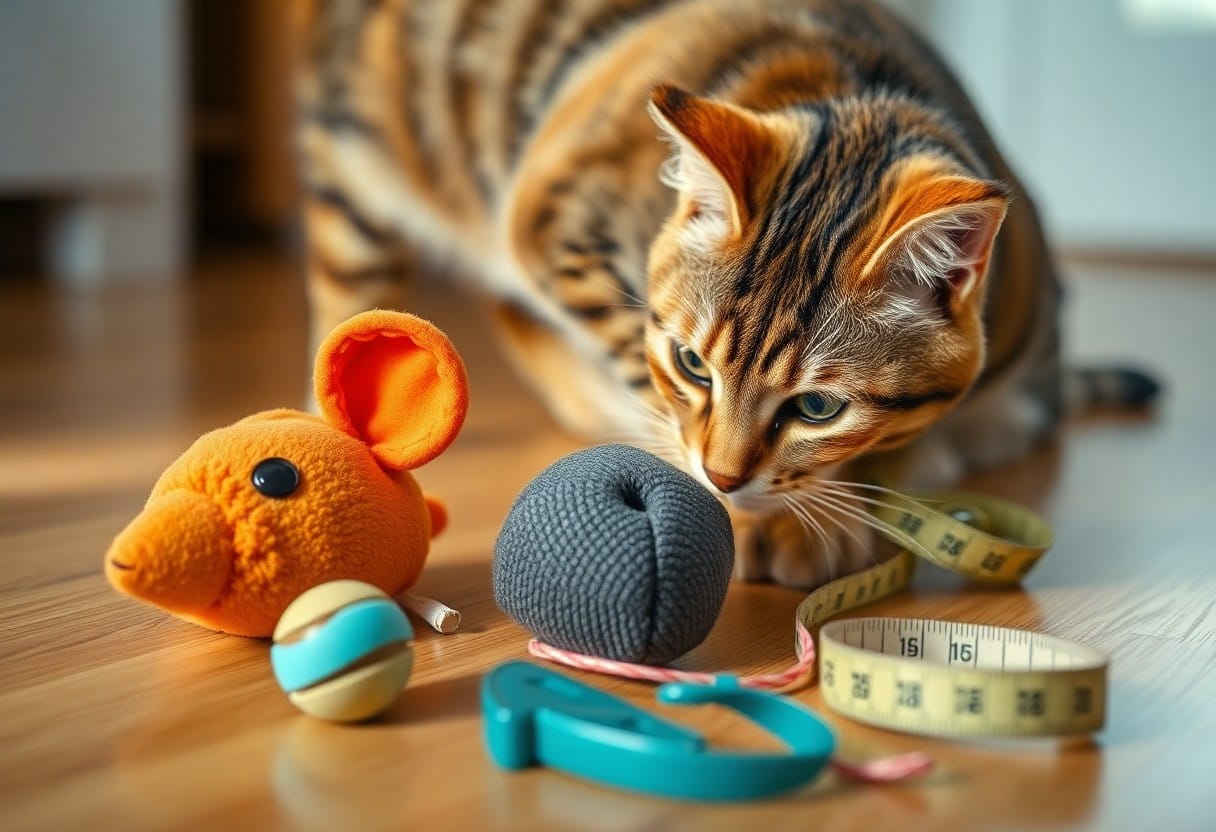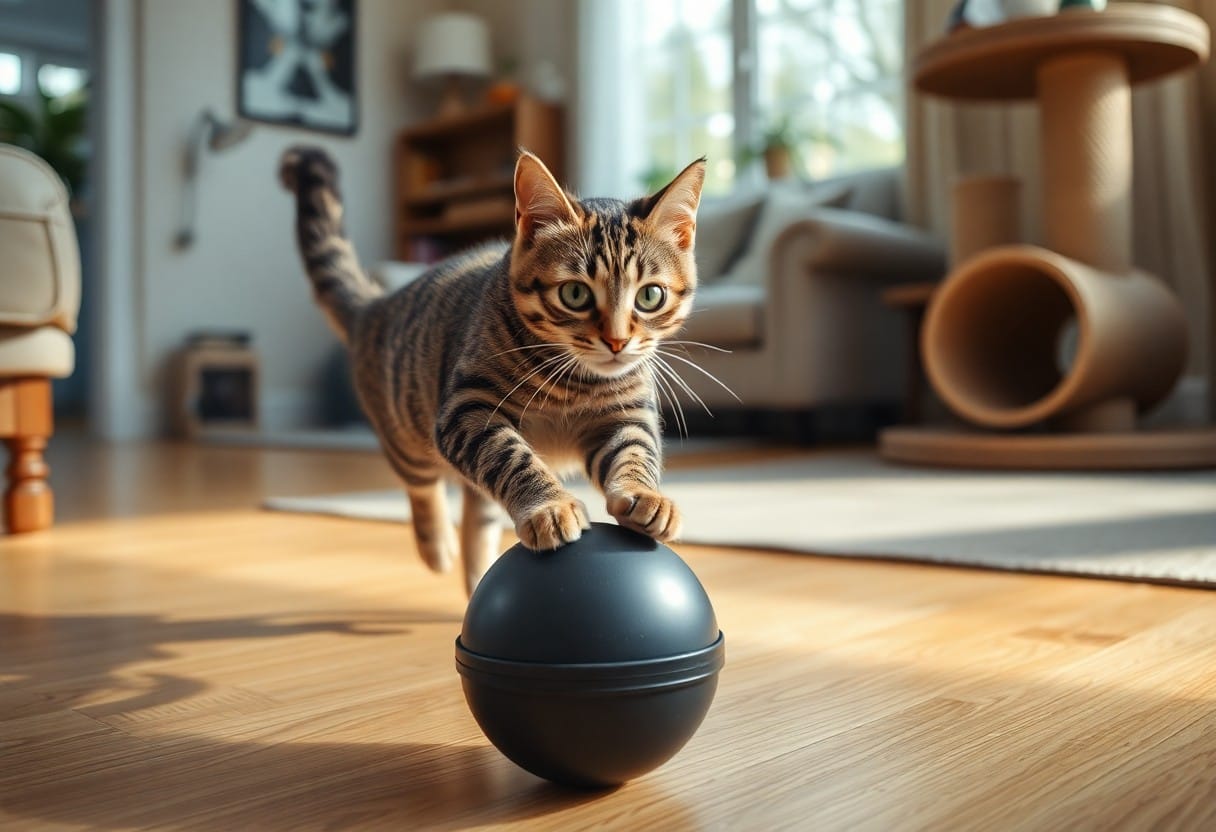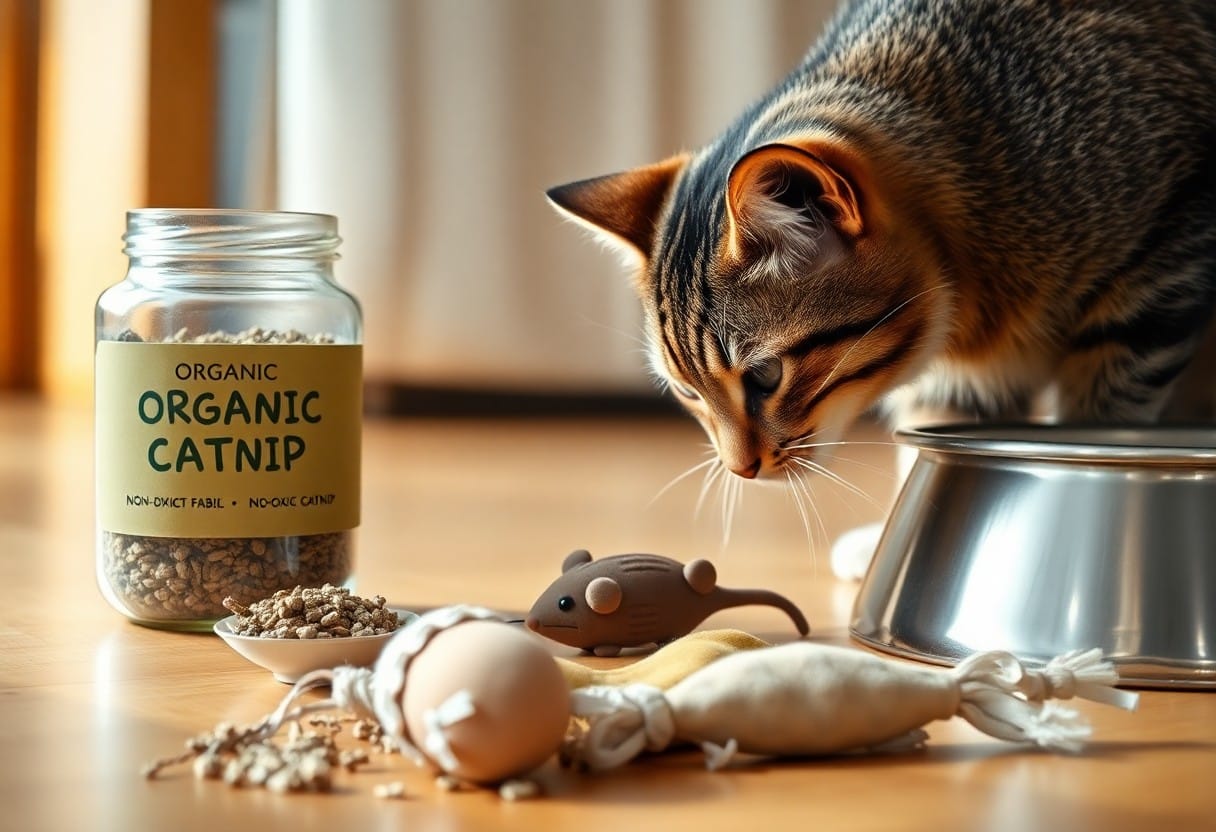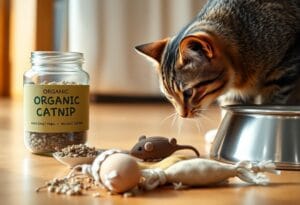Many cat owners may not realize the crucial role that protein plays in their feline friend’s diet. Protein is an imperative nutrient that is vital for a cat’s overall health and well-being. From muscle development to immune function, protein is necessary for numerous functions in a cat’s body. Understanding the importance of protein in your cat’s diet can help you make informed decisions when choosing the best food for your furry companion.
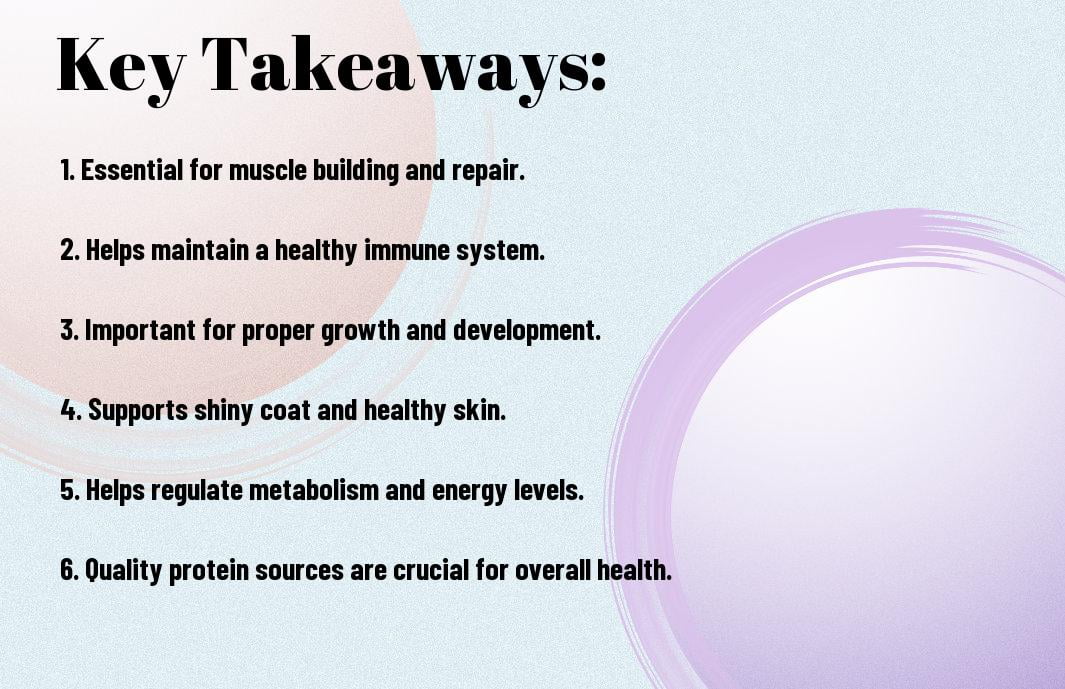
Understanding Protein
What Is Protein?
Protein is a crucial component of your cat’s diet as it serves as the building blocks for their overall health. It is made up of amino acids, which are necessary for various bodily functions such as growth, repair of tissues, and the production of enzymes and hormones.
Types of Proteins in Cat Food
To understand the importance of protein in your cat’s diet, it is necessary to know the types of proteins found in cat food. The primary sources of protein in cat food are animal-based proteins such as chicken, fish, and beef. Plant-based proteins like soy and grains may also be included in some cat food recipes.
- Animal-based proteins are considered to be of higher quality as they provide all the necessary amino acids that cats need for optimal health.
- Plant-based proteins may lack certain amino acids, so it is important to ensure that your cat’s diet is well-balanced.
- Assume that at least 30-40% of your cat’s diet should come from high-quality animal-based proteins.
To further break down the types of proteins in cat food, refer to the table below:
| Protein Source | Examples |
| Animal-Based Proteins | Chicken, Turkey, Beef, Fish |
| Plant-Based Proteins | Soy, Grains |
| Incomplete Proteins | Vegetables, Fruits |
| Complete Proteins | Meat, Fish |
| Essential Amino Acids | Taurine, Methionine |
How Cats Utilize Protein
Protein plays a vital role in various physiological processes in cats. It is primarily used for energy production, muscle development, and maintaining healthy skin and coat. Cats have a higher protein requirement compared to other animals due to their unique metabolism as obligate carnivores.
It is crucial to provide your cat with a diet that contains high-quality protein sources to meet their nutritional needs adequately. Protein deficiency can lead to muscle wasting, lethargy, and overall health issues in cats.
What
Understanding the importance of protein in your cat’s diet is necessary for their overall well-being. By providing a diet rich in high-quality animal-based proteins, you can ensure that your feline companion receives the necessary nutrients to thrive and lead a healthy life.
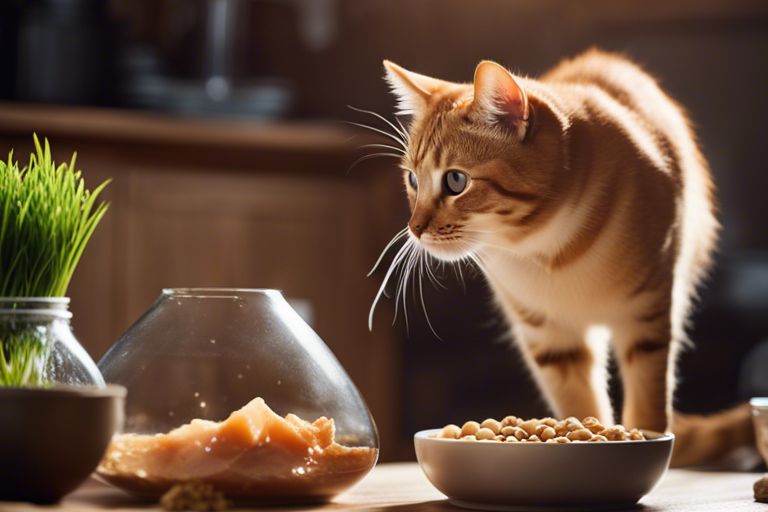
The Benefits of Protein for Cats
Muscle Growth and Maintenance
For cats, protein is important for muscle growth and maintenance. Cats are natural hunters and carnivores, which means their diet should be high in animal-based proteins to support their muscle development. A lack of protein in a cat’s diet can lead to muscle wasting and weakness, so it’s crucial to ensure they are getting enough quality protein in their meals.
Immune System Support
System
Cats’ immune systems rely on protein to function effectively. Protein helps produce antibodies that fight off infections and illnesses, keeping your cat healthy and strong. By including sufficient protein in your cat’s diet, you are providing them with the building blocks necessary to maintain a robust immune system.
Maintenance
Fur and Skin Health
Skin
Protein is also crucial for maintaining your cat’s fur and skin health. The protein in their diet helps support the production of important oils that keep their skin moisturized and their coat shiny. Additionally, protein is necessary for skin cell regeneration, helping to maintain healthy skin and a lustrous coat.
It
Signs of Protein Deficiency
Physical Indicators
An inadequate intake of protein in your cat’s diet can result in several physical indicators of deficiency. These may include a lackluster coat, dry and flaky skin, and slow or stunted growth in kittens. Additionally, muscle wasting, weakness, and lethargy can all be signs of protein deficiency in cats.
Behavioral Changes
With a deficiency in protein, cats may exhibit behavioral changes that are cause for concern. They may become more irritable, aggressive, or anxious. Changes in their sleep patterns and appetite may also be observed.
Behavioral changes in cats due to protein deficiency can impact their quality of life and overall well-being. It’s important to address these signs promptly by consulting with your veterinarian and adjusting their diet accordingly.
Long-Term Health Consequences
Protein deficiency can have severe long-term health consequences for your cat. Chronic protein deficiency can lead to impaired immune function, making your cat more susceptible to infections and illnesses. Additionally, it can result in poor wound healing, organ damage, and ultimately, a shortened lifespan.
Changes in your cat’s protein intake should be closely monitored to ensure they are meeting their dietary requirements. Regular veterinary check-ups and a balanced diet are crucial to prevent protein deficiency and its associated health risks.
Determining the Right Amount of Protein
Despite the importance of protein in your cat’s diet, determining the right amount can be a bit tricky. It is crucial to consider factors such as age, weight, activity level, and overall health when deciding on the protein requirements for your feline companion.
Protein Requirements by Age
To ensure that your cat is getting the correct amount of protein, it’s crucial to understand how their needs change as they age. Kittens, for example, require a higher amount of protein to support their rapid growth and development. As cats mature into adults, their protein requirements may decrease slightly but should still make up a significant portion of their diet. Senior cats often have decreased muscle mass and may benefit from a diet slightly higher in protein to help maintain muscle strength.
Factors Affecting Protein Needs
Protein requirements can vary based on several factors, including your cat’s activity level, muscle mass, reproductive status, and overall health. Factors such as pregnancy or nursing can increase a cat’s protein needs, while a sedentary lifestyle may require less protein. Other health conditions, such as kidney disease, can also impact how much protein your cat should consume.
- Knowing your cat’s specific needs and consulting with your veterinarian can help you determine the right amount of protein for your feline friend.
Adjusting Protein Intake for Activity Levels
Intake of protein should be adjusted based on your cat’s activity level. Active cats who expend more energy throughout the day may benefit from a diet slightly higher in protein to support their muscle recovery and energy needs. Conversely, less active cats may require a diet with slightly less protein to prevent weight gain and maintain a healthy metabolism.
Activity level plays a significant role in determining the appropriate protein intake for your cat. Monitoring your cat’s activity levels and adjusting their diet accordingly can help ensure they are getting the right balance of nutrients to support their overall health and well-being.
Sources of Protein for Cats
Animal-Based Proteins
To ensure the health and vitality of your cat, it is crucial to provide them with high-quality protein sources. Animal-based proteins such as chicken, turkey, fish, and beef are excellent options for meeting your cat’s protein needs. These protein sources contain important amino acids that are vital for maintaining your cat’s muscle mass, immune system, and overall well-being.
Plant-Based Proteins
Protein from plant-based sources such as soy, peas, and lentils can also be included in your cat’s diet. While cats are obligate carnivores and require animal-based proteins for optimal health, plant-based proteins can supplement their diet. These sources can provide additional nutrients and fiber that contribute to your cat’s overall nutrient intake.
However, it is important to note that plant-based proteins alone may not provide all the important amino acids that cats need. Therefore, it is crucial to consult with a veterinarian to ensure your cat’s nutritional needs are adequately met.
Balancing Protein Sources
The key to providing a well-rounded diet for your cat is balancing both animal-based and plant-based protein sources. By incorporating a variety of protein sources into their diet, you can ensure that your cat receives a wide range of important nutrients and amino acids necessary for their optimal health.
It is important to carefully plan your cat’s diet to meet their specific protein requirements based on their age, activity level, and overall health. Consulting with a veterinarian or a pet nutritionist can help you create a balanced meal plan tailored to your cat’s individual needs.
Common Protein-Related Issues
Protein Allergies in Cats
Not all cats can tolerate certain proteins in their diet. Protein allergies are relatively common in felines and can manifest in symptoms like skin irritation, itching, hair loss, and gastrointestinal upset. Identifying the specific protein causing the allergy can be challenging and may require a process of elimination through a strict diet trial under veterinary supervision.
Kidney Disease and Protein Consumption
Protein plays a crucial role in maintaining your cat’s overall health, but when it comes to kidney disease, the relationship becomes more complex. Cats with kidney issues may benefit from a diet that is not excessively high in protein. Kidneys can struggle to process and eliminate the byproducts of protein metabolism, leading to potential strain on these organs.
Issues may arise when cats with kidney disease consume too much protein, as it can worsen their condition. However, it’s crucial to consult with your veterinarian to determine the appropriate protein levels for your cat based on their individual health needs.
High-Protein Diets: Risks and Rewards
Allergies to high-protein diets in cats are rare but can occur. Some cats may have adverse reactions to certain types of protein, leading to symptoms like vomiting, diarrhea, or skin issues. If you suspect your cat is sensitive to a particular protein source, consult with your vet to identify the allergen and make appropriate dietary adjustments.
High-protein diets have gained popularity for cats due to their carnivorous nature and the potential benefits to muscle development and weight management. However, it’s crucial to strike a balance and ensure that the protein levels meet your cat’s nutritional requirements without exceeding them, especially if your cat has underlying health conditions.
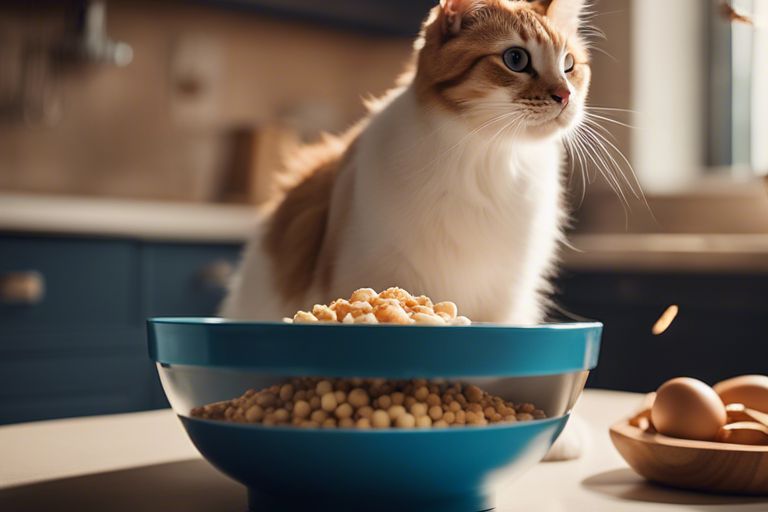
Feeding Recommendations and Tips
Many factors go into determining the right type and amount of protein to feed your cat. It is crucial to consider your cat’s age, weight, activity level, and any health conditions they may have. Here are some feeding recommendations and tips to ensure your cat gets the protein they need:
- Choose high-quality cat food with animal-based proteins listed as the first ingredients.
- Consult with your veterinarian to determine the appropriate protein percentage in your cat’s diet.
- Monitor your cat’s weight and adjust their food intake as needed to maintain a healthy weight.
Choosing the Right Cat Food
Feeding your cat a balanced and complete diet is important for their overall health and well-being. When opting for cat food, look for options that are specifically formulated for their life stage (kitten, adult, senior) and any specific health requirements they may have.
It’s important to choose cat food that is AAFCO (Association of American Feed Control Officials) approved to ensure it meets the necessary nutritional standards for your cat.
Reading and Understanding Food Labels
One of the key ways to ensure your cat is getting the right amount of protein is by reading and understanding food labels. Look for labels that list a high-quality protein source as the main ingredient, such as chicken, turkey, or fish.
Understanding the order of ingredients on the label is important, as they are listed by weight. The first few ingredients should ideally be protein sources, followed by carbohydrates and fats.
Homemade Diets: Pros and Cons
On the other hand, some pet owners prefer to create homemade diets for their cats. While this allows for more control over ingredients, it can be challenging to ensure a balanced and complete diet. Here are some pros and cons to consider:
Pros
| Control over ingredients | Time-consuming to prepare |
| Fresh and natural ingredients | Risk of nutrient deficiencies |
Cons
| Cost-effective | Difficulty in meeting nutritional requirements |
| Customizable to your cat’s preferences | Risk of contamination or foodborne illnesses |
Before switching to a homemade diet, it is crucial to consult with a veterinarian or a pet nutritionist to ensure it meets all of your cat’s nutritional needs.
Summing up
To wrap up, protein is an vital component of your cat’s diet as it plays a crucial role in maintaining their overall health and well-being. As obligate carnivores, cats require a diet high in protein to support various bodily functions such as muscle development, immune system function, and energy production.
Ensuring that your cat receives a balanced and adequate amount of protein in their diet is key to promoting their longevity and quality of life. By choosing high-quality protein sources and providing a well-rounded diet, you can help your feline companion thrive and stay healthy for years to come.
FAQ
Q: Why is protein important in a cat’s diet?
A: Protein is crucial in a cat’s diet as it provides the necessary amino acids needed for key bodily functions such as muscle development, maintenance, and immune system support.
Q: What are the best sources of protein for cats?
A: The best sources of protein for cats include animal-based proteins such as chicken, turkey, fish, and beef as they contain all the crucial amino acids required by cats.
Q: How much protein should be in a cat’s diet?
A: Cats are obligate carnivores and require a diet high in protein. Ideally, a cat’s diet should consist of at least 26-30% protein on a dry matter basis to meet their nutritional needs.
Q: What are the signs of a protein deficiency in cats?
A: Signs of a protein deficiency in cats may include weight loss, muscle wasting, coat deterioration, lethargy, and a weakened immune system. It is important to consult a veterinarian if you suspect your cat is not getting enough protein in their diet.
Q: Can a cat consume too much protein?
A: While cats require a high-protein diet, excessive protein intake can lead to health issues such as kidney damage. It is important to provide a balanced diet and consult with a veterinarian to determine the appropriate protein levels for your cat based on their individual needs.
